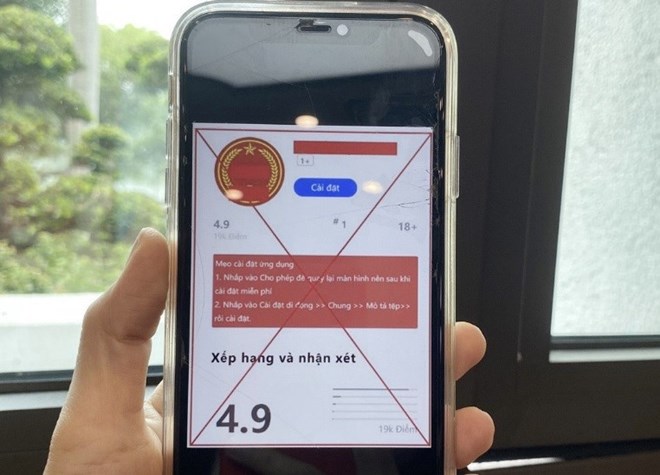To stay safe online and help combat online fraud, Google launched the Google Play Protect feature in Vietnam at the end of December 2024, in cooperation with the Vietnam Information Security Agency (AIS).
In just over a month, Play Protect has protected more than 360,000 devices from over 1.5 million risky installations across 8,000 malicious apps in Vietnam.
To raise awareness among users about common online scams and share some security tips, Google has outlined five common online scams today:
Take advantage of major events
Fraudsters take advantage of major events, leverage AI to create new scams and upgrade the sophistication of existing scams, leaving people often feeling pressured to act quickly, inadvertently creating opportunities for scams to occur.
To stay safe, Google recommends only buying tickets to major events and donating through official channels; verifying the organization and checking the URL before clicking; and using the "Information about this result" feature in Search to check the source information.
AI-Generated Celebrity Investment Scam
Scammers use AI to create fake videos and images in which they impersonate celebrities to promote their scams.
To avoid scams, Google recommends being wary of celebrity investment advice, especially on social media. Watch for unnatural facial expressions in videos. If an investment sounds too good to be true, it’s probably a scam.
Travel Scams and Fake E-Commerce
Fraudsters create websites that mimic legitimate shopping, travel, and retail sites, luring victims with extremely attractive prices on popular items, luxury goods, concert tickets, or travel deals.

To stay safe, verify the website before making a purchase, especially during sales. Check the URL, security features, and be wary of low prices and pushy offers.
Use the "Info about this result" feature for unfamiliar sites. Through My Ads Center, find advertiser information and report bad ads.
Fraud through fake remote technical support services
Fraudsters often impersonate technical support staff of companies, banks and government agencies, with the aim of installing remote access software, from which they can control the device, access personal data, bank account information, and perform unauthorized transactions.
To be safe, never grant remote access to unfamiliar accounts. Legitimate companies will not initiate technical support calls.
Contact companies directly through their official communication channels, and increase security with 2-step verification, access keys, or a password manager.
Job scam
These scammers target people looking for remote work and international job opportunities with attractive salaries. In addition to asking for upfront fees and stealing data, this scam also entices victims to engage in money laundering or other illegal activities.
To avoid being scammed, be cautious of “too good to be true” job offers, especially those that involve money transfers.
Please verify job opportunities through the company's official channels.











